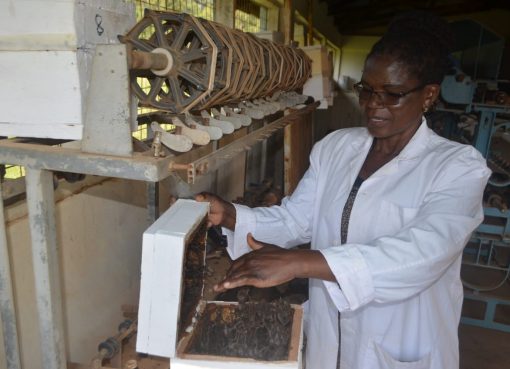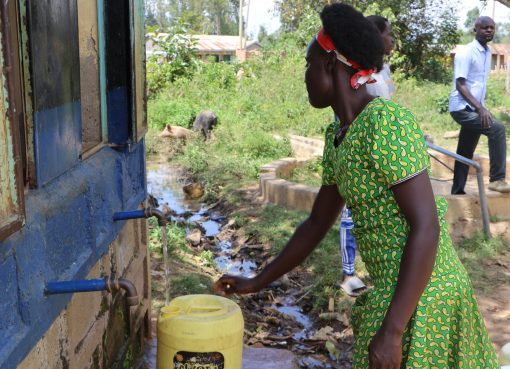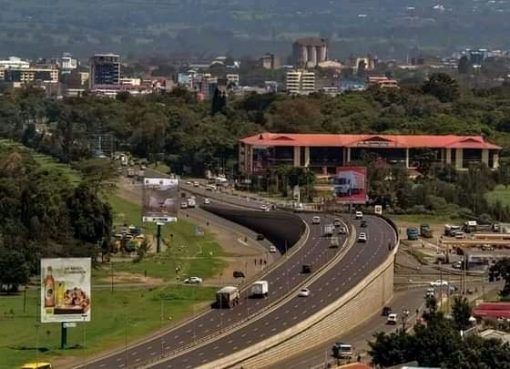The move by the government to flex its muscles in fighting the preparation, sale and consumption of illicit brews and other hard substance drugs like bhang, is both good and bad news in equal measures to Kenyans, depending on which side of the divide one feels favors his or her morals.
For those religiously chockfull, the state should be more hell bent in the war to the point of subduing the last cartels in the business of distilling and distributing the bad alcoholic drinks as well as those trafficking bhang.
To those eking their lives from trading such brews and cannabis sativa, as well as those joyously gulping and smoking the otherwise, illegal and killer second generation alcoholic liquids and weeds, as per the government’s feel, are obviously protesting and baying for the blood of those out to deflate their morale.
Perhaps, the Kenya Kwanza government has realized a successive regime lapse in handling and curtailing the sale, distribution and consumption of the illicit alcoholic drinks and hard drugs, prompting a swift announcement of a ‘David and Goliath’ duel countrywide to address the vice.
Already a nationwide crackdown on the unhealthy drinks and hard drugs, plus the business people handling them, has been trumpeted and all enforcement agencies alerted to take up the fight against the vice that is threatening lives of millions of Kenyans, especially the young people.
In a no-nonsense statement recently, Deputy President, Rigathi Gachagua, warned County Commissioners, Police Commanders and Chiefs to ignore the order to clean their jurisdictions of the bad drinks and drugs at their own peril.
“This time round, none of you will be transferred to work in another area for failing to fight these illicit brews and hard drugs; you will be sacked rather than transferring your weakness to another region,” he told one of the many meetings he has held in the country.
In Migori County, the campaign to subdue the cartels perpetrating the illegal trade of the second-generation liquor and bhang trafficking is being led by the area County Commissioner David Gitonga and his Police Commander counterpart Mr. Francis Nguli.
Through a multi-agency security apparatus that draw its membership from the National Authority for Campaigns against Drug Abuse (NACADA), the Anti-counterfeit, Kenya Bureau of Standards (KEBS), Kenya Revenue Authority (KRA) and the Department of Public health, the team has been conducting a joint door-to-door inspections that has so far netted several counterfeit and unlicensed alcoholic drinks, as well as tones of bhang in the region.
The team, backed by a contingent of police officers, has also arrested a number of business people found non-compliant to various requirements set for alcoholic drinks.
Speaking recently to the press after a massive swoop on toxic drugs, Commissioner Gitonga warned the unscrupulous business people selling such liquor and drugs to stop immediately or the law will deal with them accordingly.
He said the security agencies will continue to partner with the existing state agencies in fighting illicit brews and bhang which have destroyed many lives especially of the young people in the region.
Gitonga regrets that majority of those who consume such drinks and consume are the youth who should be engaged in doing meaningful activities to better their lives.
“We are saying the illicit liquors are dangerous to the lives of the people and those stocking and selling them in their shops must stop or the law will catch up with them soon,” he warned.
However, the exercise has exposed the need for the government to reinforce security at the porous Kenya-Tanzania common border through which many of the counterfeit illicit drinks are smuggled into the country.
It has become clear that unscrupulous business people use the porous border points at Isebania, town, Kopanga and Nyamtiro markets to bring in the second-generation liquor that are branded with fake KEBS marks into the country.
Areas like Osaka and Pand Pieri in the outskirts of Migori town have been identified as hotspots where counterfeit alcoholic drinks from Tanzania and Uganda are sold in large quantities.
The areas are also rated very low in sanitation and public health officials were told during the raid to swiftly act to correct the situation before it becomes worse.
But even as the war on the illicit liquor looks successful in the area in the recent days, the team is finding a stiff challenge dealing with bhang trafficking, a business that has thrived in the region for decades.
For decades, Kenya has offered a big market for Tanzanian bhang (marijuana) consumed locally and those on transit to other countries and foreign lands.
Bhang worth billions of shillings have passed through the Isebania-Migori-Kisii highways enroute to urban areas, with only a small percentage being nabbed and destroyed by the police and courts in Migori County.
The cartels believed to be working in cahoots with their counterparts in Tanzania have always smuggled the weed, grown on the vast plantations within the Mara regions into Kenya for consumption by even school children.
Kenyan authorities led by a team of NACADA officials have in the past attempted to engage Tanzania authority in bilateral talks to help resolved the issue but their counterparts have not been cooperative despite being a signatory to the agreement declaring bhang illegal internationally.
A recent KNA spot-check in Tarime, Tanzania, to grasp facts about the business on the drug found out that bhang is deemed a legal crop in Tanzania and is grown just like any other crop such as sugarcane in Kenya.
“Twalima mmeya huu katika mazingara huru kama vile mnavyo kuza miwa huko kwenu (We just grow bhang in a free environment just like you do with sugarcane in your country)”, remarked one Tarime resident, Mr. Zakaria Makongo during an interview.
He affirmed Kenya has been one country that Tanzania bhang growers have regarded a ready market for their produce and businessmen come all the way from as far as Mombasa to buy the crop.
But now that the Tanzania is also keen on illegalising the crop, we have to look for alternative crops to sustain our lives, added Makongo who confirmed owning a bhang farm in a remote village near Tarime town.
In 2018, the then home affairs minister Mwigulu Nchemba who led an operation against the drug within a village in Northern Tanzania, where six hectares of Marijuana grown in forests was destroyed, urged Tanzanian farmers engaged in the business to look for other means of livelihood.
According to a story by Xinhua news agency published by a Kenyan Media, Mr. Nchemba vowed to carry out the operation countrywide to bring what he termed as an illegal trade in the Country to an end.
However, to date nothing has changed and the business has continued to boom faster than ever. While many Tanzania nationals were quick to criticise their government’s stand on bhang, others had little kind words for the Tanzania foreign minister, saying he must prepare to fight a war that he may not win in his life.
“Bwana huyu asijifanye mwerevu sana. Nilazima ajipange viliyo kabla hajajitupa ndani ya vita hivi. (He thinks he is knowledgeable enough. He must prepare well before he picks this war,” said another bhang Tanzania national.
It was apparently clear then that Kenyan Authorities were the happiest lot about the ban and the announcement came at a time when the government was in serious dilemma dealing with notorious drug traffickers roaming towns and villages.
While the Tanzania had in the past exhibited a high degree of “I don’t care” attitude towards containing bhang growing in her jurisdiction, on the other hand Kenya was and is to blame for offering a firm market for the foreign country’s produce.
On the Kenyan side, the crop is illegal but peddlers have to do business at all costs to line up their pockets, even as police force and other law enforcement agencies in the country attempts to break up the business.
The two East African states have in the past agreed to fight the cross-border drug trafficking, but it seems Tanzania has been playing games with their neighbour knowing very well that the trade will not end easily without the death of the strong market in Kenya.
A cartel, allegedly involving a clique of police officers, immigration officials and top businessmen, are said to be a stumbling block, operating a well webbed under-cover cross-border drug traffic, minting billions of shillings annually.
The trade is being handled by wealthy Kenyans who are able to ferry the stuff in sleek cars as effective means of camouflaging away from the eyes of uncooperative security agents.
Hardly a day passes without a sleek car, preferably Rav 4, and Pajero model cars being impounded or involved in car-chase with security officers along the Isebania – Kisii highway.
Interestingly, whenever a consignment is impounded and the stuff taken to police station, the haul never finds its way to court indicating a conspiracy between security officers and those in the business.
“We are disturbed that the business has refused to go away in the country because police are seriously involved in it and are providing ready market for the stuff in towns and market centres,” claimed a resident of Migori town who asked not to be named for fear of intimidation.
The man accused security officers of distributing seized bhang to their friendly peddlers who pay them after selling the consignment.
But the Migori County police boss Mr. Nguli says he cannot connect the security officers with the business because none of them has been arrested with the stuff anywhere within the region.
However, he could not explain why the force has not effectively dealt with the business even though there are so many roadblocks mounted between Isebania and Kisii town, the main route for the drug to Nairobi and beyond.
By George Agimba




